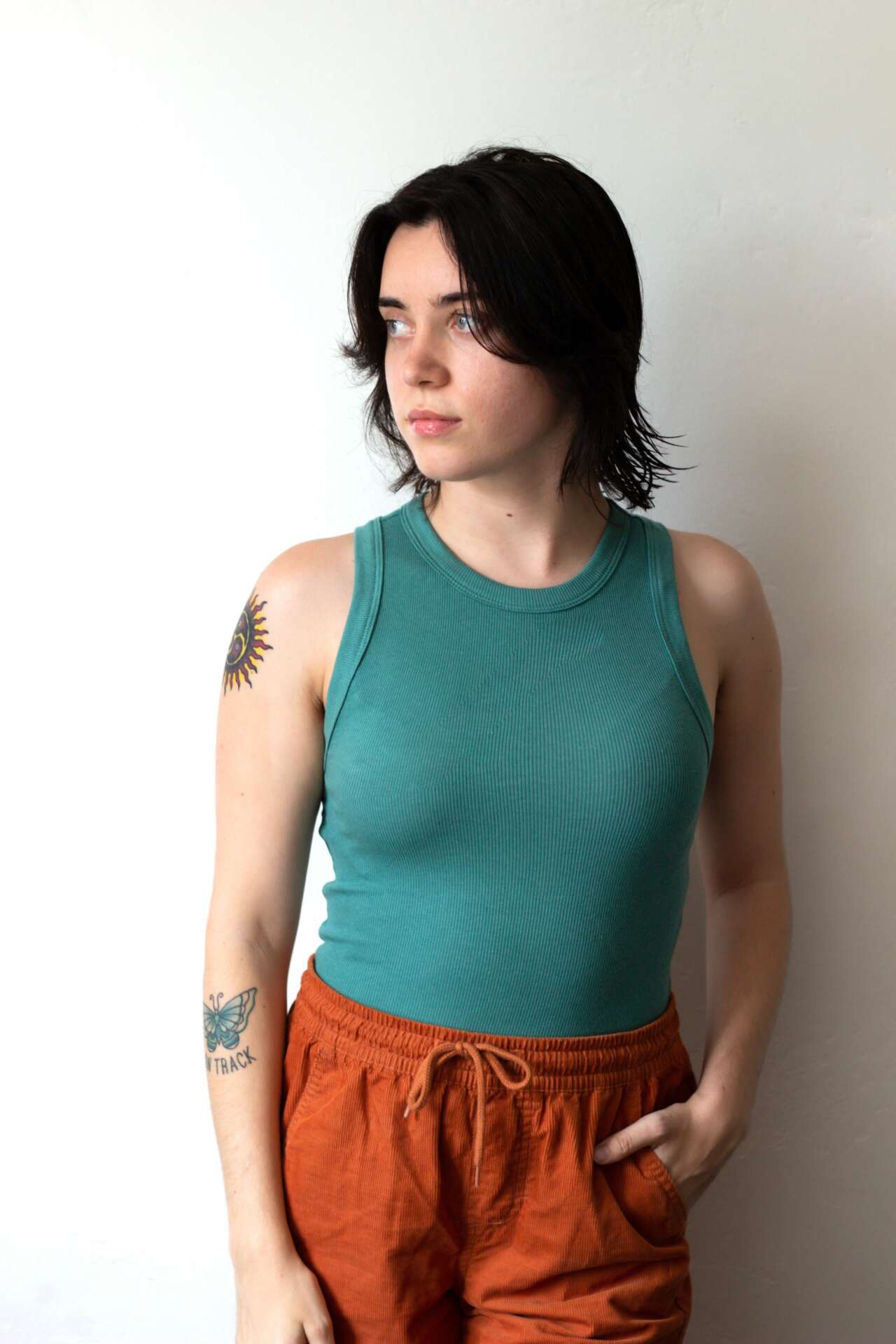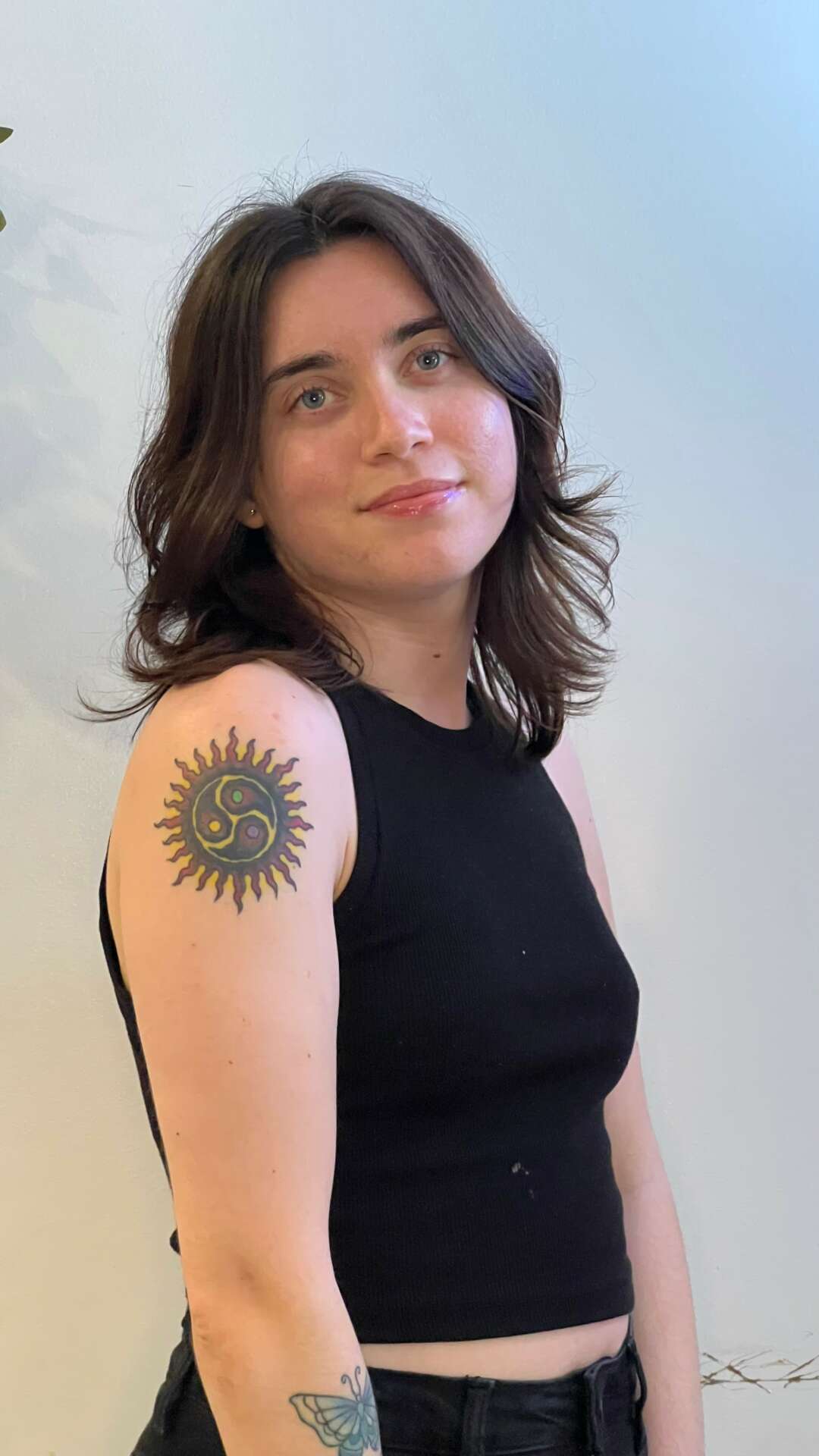We recently connected with Caylin Mansfield and have shared our conversation below.
Caylin, appreciate you joining us today. Do you feel you or your work has ever been misunderstood or mischaracterized? If so, tell us the story and how/why it happened and if there are any interesting learnings or insights you took from the experience?
I have definitely felt misunderstood throughout my life and I think from the get-go being born premature, diagnosed with cerebral palsy, adhd, anxiety, difficulty in school and exposed to a different kind of outlook on life than other kids and peers around me, It took a lot for me to be confident into speak what was really on my mind. People when first meeting me, throughout the years as I was growing up I think had thoughts made up in their mind about who I was, what I liked, or even how I would or wouldn’t struggle. People used to not take me seriously because of this “oh, bless you child attitude” as a kid I wouldn’t mind sharing about my disability, until it got to the point where I wasn’t believed. Having your parents have to step in and affirm something about you isn’t the most confidence building and so I became quiet, unsure of myself, constantly jumping between what other people liked and confusing that with what I liked, not feeling like I fit in which I think led to more anxiety about being misunderstood. As an adult and in the workplace I feel less of that pressure, and in settings where I’m modeling or even asked to send in an audition/ self tape is where I feel the least misunderstood. In the LGBTQIA+ community, online community of poets, and coffee lovers, disabled models and music lovers I finally feel seen and understood.



Caylin, love having you share your insights with us. Before we ask you more questions, maybe you can take a moment to introduce yourself to our readers who might have missed our earlier conversations?
My name is Caylin Mansfield, I’m 24 years old, queer and gender fluid, and born and raised in San Diego, CA. I was born premature at 24 weeks, at 1 pound 7 ounces, and diagnosed with Cerebral Palsy at the age of 2. Now I’m a Model with Zebedee Talent. I’m pretty outgoing and so as I got older and more confident about who I am I started to share more openly with others about living with Cerebral Palsy and Mental health struggles. I started out writing tons of poetry as an outlet for my teenage angst, feelings, experiences, and aspirations, which quickly turned into other areas of interest like modeling. Growing up I was obsessed with shows with models like “Project Runway and America’s Next Top Model” and had this pestering thought of what if someone like me was on that runway? being disabled and the height of 4’10”, I didn’t think that was possible for me. I had people tell me it was silly and there was no need to dream of something like that but it became a re occurring theme for years to come until one day I just decided I was going to follow my gut instinct to search up as many modeling agencies as possible and apply. Surprisingly not even a week later Zebedee Talent was the only agency to respond back to me, with an exciting email that they wanted to represent me! The amount of shock on my face and happiness I felt is a once in a lifetime feeling. The thought that no matter how long this process might be to make it into the industry I’ve been dreaming about I’m already one step closer. I think what sets me apart from others could be that I take big risks, I have a feeling that won’t go away, I follow it. I follow where my intuition leads me and leave what no longer serves me when the time comes and so I’m always open to new challenges and opportunities that come my way, without fear of judgement. I let my neurodiversity shine and stay true to myself at all times. Something I’m most proud of is that throughout my life, the trauma I’ve endured, setbacks both physically and mentally, I stay grounded in myself, and in my beliefs and passions. I stay resilient to my aspirations not letting others opinions change what I set out to do and to help / encourage others.



Let’s talk about resilience next – do you have a story you can share with us?
A story I can think of that illustrates my resilience is despite being told I wouldn’t make it on my own, as a disabled and queer woman, I took the leap at 21 to move away from my family, and get my first job. I did this being told I would struggle and no one would want to hire me. I was in not the most supportive environment at the time, so I truly believed I wouldn’t be able to live on my own or go after what I wanted. 3 years later I’ve had many eye opening jobs that have led me to the best learning experiences, I geared up the courage to go back to school and step into the modeling world. To be signed to an all inclusive agency has been the best experience and I know it’s just the beginning for me. It’s important that disabled people create their own independence and dreams no matter what society and ableist barriers stand in the way.



What can society do to ensure an environment that’s helpful to artists and creatives?
I think the best thing society can do is fully recognize the power of creativity, because without it, none of what we have access to would exist. That any and all types of creativity is valid. It exists in all forms, even the forms that people don’t think it does. To support creative arts in academia and encourage more people to find their inner artist, that artistry deserves the utmost respect. A thriving creative ecosystem can happen when energy is put first.
Contact Info:
- Instagram: www.Instagram.com/lolitscaylin
- Other: https://www.zebedeetalent.com/usa/
Image Credits
Ell Treese


